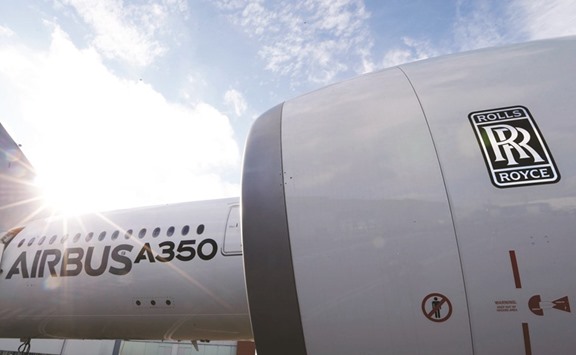European stocks rebounded yesterday on higher oil prices, solid German economic growth and rising US retail sales, regaining some ground lost this week on fears of a global recession.
London’s FTSE 100 jumped 3.1% at 5,707.60 points and Frankfurt’s DAX 30 was up 2.5% at 8,967.51 points and Paris’s CAC 40 gained 2.5% at 3,995.06 points at close, brushing off another slump in Asia, as investors welcomed news that the German economy grew by a solid 0.3% in the fourth quarter.
World oil prices, meanwhile, climbed on fresh hopes of an Opec output cut, one day after tanking towards 13-year lows on the stubborn crude supply glut.
Europe’s main stock markets were buoyed also by bargain-hunting after another calamitous day on Thursday, when Frankfurt shed 2.9%, Paris slumped 4.1% and London dived 2.4%.
Despite yesterday’s gains, European markets are still down heavily from the beginning of the year. Milan has lost nearly 23% of its value, Frankfurt over 16%, Paris nearly 14% and London over 8%.
Wall Street equities also pushed higher yesterday after data showing retail sales edged 0.2% higher in December and January despite falling oil prices, helping to underpin positive sentiment.
The January and December gains suggest “consumer spending may not be as weak as thought, especially given the lack of inflation,” said Scott Hoyt of Moody’s Analytics.
Markets were slammed this week by global economic fears centred on China, banking jitters - and questions over the impact of the European Central Bank’s quantitative easing (QE) stimulus, dealers said.
“European markets ... have been hit by a whole series of negative factors this week - not only global recession fears and general solvency concerning banks, but by increasing evidence that QE by the ECB does not seem to work - or that it has not had the desired effect so far,” said Markus Huber, analyst at brokerage Peregrine & Black in London.
“Some traders also point out that unlike in 2008/2009, major central banks have only limited tools and measures available to support global growth,” he told AFP.
Huber added that, during the global financial crisis, the world’s central banks had greater scope because interest rates were far higher and liquidity was far lower.
The London stock market was meanwhile propelled higher yesterday also on investor relief that British engine maker Rolls-Royce had not scrapped its shareholder dividend.
Rolls-Royce, which did however cut the payout for the first time in almost 25 years, saw its share price rocket over 14% to 606 pence, topping the FTSE 100 leaderboard.

An Airbus A350 is seen with a Rolls-Royce engine at the Airbus headquarters in Toulouse. Rolls-Royce yesterday saw its share price rocket over 14% to 606 pence, topping the FTSE 100 leaderboard.
